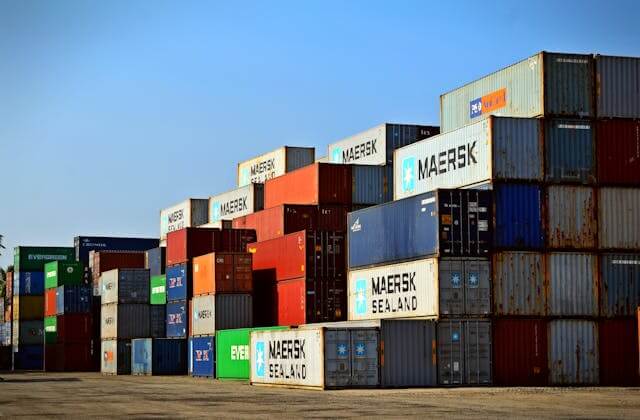When it comes to global trade, Chinese manufacturers are at the heart of many businesses’ supply chains, offering a wide range of products at competitive prices.
But reaching out to them isn’t just about sending an email or making a phone call—it’s about building trust, understanding their work culture, and setting clear expectations.
If you’re new to sourcing products from China, the process might feel a bit overwhelming. The good news? It doesn’t have to be.
With the right approach and a little preparation, you can confidently connect with reliable manufacturers and establish partnerships that last.
From identifying the right suppliers to using the best communication strategies, this guide will walk you through how to contact Chinese manufacturers in 2025.
Whether you’re looking to launch a new product or scale your business, these tips will set you on the path to success. Let’s begin, shall we?
Key Takeaways
- Chinese manufacturers play a vital role in global supply chains, making it essential to establish effective communication with them.
- Explore various online platforms to locate potential suppliers while using appropriate communication methods.
- Utilize negotiation best practices, understand cultural differences, and maintain clear expectations for successful partnerships.
Why Do You Need a Chinese Manufacturer?

China has long been known as the world’s factory, and for good reason. With its extensive manufacturing infrastructure, skilled workforce, and competitive pricing, partnering with Chinese manufacturers can offer unparalleled advantages for businesses. Here’s why:
1. Cost-Effective Production
Chinese manufacturers are renowned for offering competitive production costs, allowing businesses to maintain healthy profit margins. Whether you’re sourcing small quantities or scaling up to large volumes, the cost savings can be significant compared to manufacturing in other regions.
2. Diverse Product Range
From electronics and textiles to home goods and specialized machinery, Chinese manufacturers produce a vast range of products. Whatever your industry, there’s a good chance you’ll find a manufacturer that specializes in what you need.
3. Advanced Manufacturing Capabilities
Over the years, China has invested heavily in state-of-the-art technology and manufacturing processes. Many manufacturers can handle complex designs, customizations, and large-scale production without compromising on quality.
4. Scalable Solutions
Chinese manufacturers are equipped to handle businesses of all sizes, from startups placing small orders to established companies requiring mass production. This scalability makes them a reliable partner for growth.
5. Access to Global Supply Chains

China’s strategic position as a global trade hub means most manufacturers have established supply chain networks, ensuring faster production timelines and efficient delivery options to almost any corner of the world.
By working with a Chinese manufacturer, you’re tapping into a network of expertise and resources that can help your business stay competitive in today’s fast-paced market.
The key is finding the right manufacturer who aligns with your needs—something we’ll explore in the sections ahead.
Types of Manufacturers in China
When sourcing products from China, you’ll encounter various types of manufacturers, each catering to different business needs.
The main categories include Original Equipment Manufacturers (OEMs), Original Design Manufacturers (ODMs), trading companies, and wholesalers.
OEMs are perfect if you have a unique product idea and need someone to bring it to life.
On the other hand, ODMs offer pre-designed products that you can tweak to fit your brand.
Trading companies act as helpful middlemen, connecting you to multiple factories, while wholesalers are your go-to option for smaller order quantities with minimal hassle.
Understanding these options will help you find the right partner for your business. Want a deeper look into these types and how they can benefit you? Check out our detailed guide on Types of Suppliers in China.
How Do I Find a Manufacturer in China?
Finding a reliable manufacturer in China might seem overwhelming at first, but it’s more manageable than you think with the right approach.
Here are some practical methods to get started:

Online Platforms
Websites like Alibaba, Global Sources, and Made-in-China are popular hubs for finding Chinese manufacturers.
These platforms allow you to search for suppliers based on product categories, check reviews, and even compare quotes. However, always verify the credibility of the suppliers before proceeding.
Search Online Directories
Online directories have listings of Chinese manufacturers for a wide range of products.
You can filter your search by product category, location, and other criteria.
Make sure to navigate these platforms with caution, as some suppliers may not be as trustworthy as they appear. Always verify manufacturers’ information and check for reviews before making contact.
Attend Trade Shows and Fairs
Another great way to find Chinese manufacturers is by attending trade shows and fairs. Events such as the Canton Fair and the China Import and Export Fair are excellent opportunities to meet potential manufacturers face-to-face.
These events allow you to explore different manufacturers, compare product samples, and establish personal connections.
Keep in mind that, due to the ongoing pandemic, some trade shows may be held virtually, but these can still be valuable resources for finding manufacturers.
Visit Factories in China Directly
If you have the time and resources, visiting factories in China directly is an effective way to find a reliable manufacturer.
By seeing their operations firsthand, you can assess the quality of their products, working conditions, and any potential communication barriers.
Remember that planning, transportation, and accommodations for a trip to China can be time-consuming and expensive, so factor this in when making your decision.
Hire or Work with Sourcing Agents

Finally, consider hiring or working with a sourcing agent who specializes in connecting businesses with Chinese manufacturers.
These professionals have experience working in the Chinese market and can help you find the right manufacturer for your needs.
A sourcing agent will handle the legwork of finding, vetting, and communicating with potential manufacturers on your behalf. Just make sure to carefully evaluate the sourcing agent’s track record, fees, and reputation before engaging their services.
3 Ways to Shortlist Chinese Manufacturers
1. Reviews and Ratings
When assessing Chinese manufacturers, it’s important to consider their reviews and ratings.
Start by checking out customer feedback on their Business-to-Business (B2B) platform profiles, such as Alibaba.
Keep an eye out for satisfied clients who can vouch for the manufacturer’s responsiveness, product quality, and reliability.
As a rule of thumb, aim for manufacturers with consistently positive ratings, indicating a reputable and legitimate business.
2. Logistics and Shipping Management
Shipping and logistics play a crucial role in partnerships with overseas manufacturers.
To evaluate a Chinese manufacturer’s capabilities in this area, consider their trade history and the shipping options they provide. Discuss their preferred shipping methods, associated costs, and estimated delivery times.
Also, consider potential customs issues that may arise during the import process, as complications with documentation can lead to delays.
Familiarize yourself with necessary permits and requirements and ensure the manufacturer is prepared and capable of managing these aspects.
3. Quality Control

To guarantee product quality, ensure you clearly understand the manufacturer’s quality control processes.
Inquire about their inspections and testing procedures, checking if they meet industry standards. Verifying that they can deliver the quality your customers expect from your products is essential.
When possible, request product samples to evaluate their work firsthand.
Finally, consider conducting a background check to make sure the company is in compliance with legal regulations.
Communication Channels to Contact Chinese Manufacturers
When reaching out to Chinese manufacturers, using the right communication tools can make the process much smoother.
Whether you’re asking for a product quote, sharing designs, or negotiating terms, here are some of the best ways to stay in touch:
WeChat is a popular messaging app in China and is widely used for communication among businesses and individuals.
Pros:
- Instant messaging and file sharing.
- Access to a large user base in China.
- Supports voice messages and video calls.
Cons:
- Requires both parties to have the app installed.
- Might not be the most professional communication channel.
Emails
Emails are a more formal way of contacting Chinese manufacturers and can be used for sending detailed information about your requirements.
Pros:
- Allows for clear communication and sharing of documents.
- Easy to keep records and track conversations.
- Suitable for maintaining professional relationships.
Cons:
- Slower response time compared to instant messaging apps.
- Language barrier might be an issue.
Phone Calls
Phone calls can be an effective way of communicating your needs directly to the manufacturers.
Pros:
- Quick and direct communication.
- Provides opportunities for real-time clarification of doubts.
Cons:
- Insufficient language skills on both sides.
- Requires extra planning due to time zone differences.
Video Conferences
Video conferences allow for face-to-face communication with Chinese manufacturers, making it easier to build trust and professionalism.
Pros:
- Can develop a stronger personal and professional connection.
- Allows for visual demonstrations of products or designs.
Cons:
- Requires a stable internet connection.
- Time zone differences might make scheduling difficult.
How to Effectively Communicate with Chinese Manufacturers?

Establish Relationship and Trust
Communicating effectively with Chinese manufacturers is the foundation of building a successful partnership.
Cultural differences, language barriers, and varying business practices can make things tricky, but with the right approach, you can bridge the gap. Here’s how:
Overcome the Language Barrier
One of the main challenges in communicating with Chinese manufacturers is the language barrier.
Although many suppliers have English-speaking representatives, misunderstandings can still occur. To minimize communication issues, consider the following:
- Keep your emails short and simple. This makes it easier for the manufacturer to understand your requirements and expectations.
- Use clear and concise language. Avoid jargon, slang, or complex sentences.
- Utilize visual aids, such as diagrams, if necessary, to convey your ideas.
- If possible, enlist the help of someone fluent in Chinese. This can significantly improve communication and reduce misunderstandings.
Craft a Professional Inquiry
When reaching out to Chinese manufacturers, making a good first impression is crucial. A professional inquiry email can help facilitate a smooth communication process. To craft an effective inquiry, remember to:
- Introduce yourself and your company, and explain your purpose for contacting the manufacturer.
- Clearly outline your product specifications and requirements.
- Include order quantity, target pricing, and desired lead times.
- Ask relevant questions relating to their experience, production capabilities, and certifications.
- Be polite, and address any potential cultural differences.
How to Request Samples from Your Manufacturers?

When sourcing products from Chinese manufacturers, requesting samples is one of the most important steps you can take. It allows you to assess the quality, craftsmanship, and functionality of the products before making a bulk order.
Here’s a template you can use to make the request clear and professional:
Sample Request Email Template:
Subject: Request for Product Samples
Hi [Manufacturer’s Name],
I hope this email finds you well. My name is [Your Name] from [XYZ Company], and we are interested in sourcing [Name of the Product] from your company.
Before we proceed with a bulk order, we would like to request a sample to assess the quality and ensure it meets our standards.
Could you kindly provide us with the following:
- A sample of [mention the specific product or model]
- The cost of the sample, including shipping
- Estimated delivery time
- Any customization options available
Please let us know if you need any further information from us. We look forward to hearing back and working together.
Best regards,
[Your Name]
[Your Company Name]
[Your Contact Information]
While writing your sample request, keep in mind the following:
1. Be Clear About What You Want
When reaching out to a manufacturer for a sample, be specific about the product details. Describe the exact specifications, materials, and any customizations you need. The clearer you are, the better the chances that the sample will meet your expectations.
2. Ask for Multiple Samples
If you’re considering more than one product, or if you want to compare different versions of the same product (e.g., different colors, sizes, or designs), request samples of each. This gives you a better idea of what’s available and helps you make a more informed decision.
3. Request for Customization in the Sample
If you need specific features or customization in the product, mention this in your request. Custom samples are especially important if you’re working on branded or specialized products. It’s better to know upfront if your request is feasible and if the manufacturer can meet your quality standards.
4. Inspect the Samples Carefully
Once you receive the sample, thoroughly inspect it. Look at the quality of materials, the finish, the functionality, and any other specific features that are important to you. If something doesn’t meet your expectations, don’t hesitate to communicate this to the manufacturer, so they can improve or adjust the product.
5. Test Functionality

If your product has moving parts or is technical (e.g., electronics), make sure to test its functionality. Sometimes, a product may look good on the surface, but might not work as expected when it comes to functionality. This is why testing the sample is a must.
6. Keep Communication Open
After receiving and evaluating your samples, continue to keep the lines of communication open with the manufacturer. Discuss any improvements, changes, or adjustments you’d like to make to the final product. Clear communication ensures there are no surprises later on in the production process.
Pro Tip: Some manufacturers may not have stock samples readily available, and you might need to request a custom-made one. Be prepared for a slightly longer wait time and be sure to factor this into your timeline for product launch.
Requesting samples may seem like a small step, but it’s one that can save you from major headaches later. Take the time to evaluate, and you’ll set yourself up for success with your Chinese manufacturer!
Tips for Negotiating Terms and Pricing
When contacting Chinese manufacturers, it’s essential to negotiate terms and pricing effectively. Following a clear and friendly approach can help you get the best possible deal.
1. Know Your Pricing and Budget.

Before initiating negotiations, make sure you understand the average pricing for the product you wish to purchase. This will enable you to set a realistic budget and determine if the manufacturer’s offer is reasonable.
2. Determine the Minimum Order Quantity.
Understanding the manufacturer’s minimum order quantity (MOQ) will give you leverage during negotiations. If you know their MOQ, you can tailor your order size or request a price reduction based on your desired quantity.
3. Discuss Payment Terms.
Establishing clear payment terms upfront is critical. Inquire about any prepayments, deposits, and the preferred payment methods of the manufacturer. Knowing these details will facilitate a smoother negotiation process.
4. Analyze Competition and Alternatives.
Research competitors and alternative suppliers to better understand the industry’s pricing and terms. Using this information, you can demonstrate to the manufacturer that you’re knowledgeable and can easily switch suppliers if necessary.
5. Leverage Long-Term Partnerships.

If you’re planning to engage in long-term business with a Chinese manufacturer, emphasize your commitment. This can put you in a better position to negotiate favorable terms since the manufacturer is more likely to secure a long-term partnership.
6. Start with a Reasonable Offer.
When making an opening offer, consider offering a slightly lower price than your target to create room for negotiation. This allows both you and the manufacturer to reach a mutually beneficial agreement.
7. Be Patient and Flexible.
Remember that negotiations may take some time, so it’s crucial to stay patient, friendly and professional. Keep an open mind and be willing to compromise on some aspects of the deal to achieve a positive outcome.
By following these negotiation and pricing strategies, you can effectively secure favorable terms and pricing with Chinese manufacturers while maintaining a friendly tone and mutual trust.
Frequently Asked Questions
What Is the Best Way to Reach Out to Suppliers in China?
Reaching out to Chinese suppliers can be done through various means, such as email, phone, or chat applications.
Using platforms like WeChat gives you a more direct and efficient communication experience with your Chinese suppliers, enabling instant messaging and voice calls without additional fees.
Which Platforms Can I Use to Find Reliable Chinese Manufacturers?
Several Business-to-Business (B2B) platforms and online portals can help you connect with reliable Chinese manufacturers.
Some popular platforms include Alibaba, Made-in-China, Global Sources, and DHgate. These platforms provide an excellent starting point for identifying potential manufacturing partners and initiating communication.
What Are the Tips for Negotiating with Chinese Suppliers?
When negotiating with Chinese suppliers, it’s essential to establish clear communication about product specifications and payment terms.
Building relationships is critical when dealing with Chinese suppliers, so aim to establish trust and a sense of cooperation.
Also, it’s helpful to be mindful of cultural differences and use negotiation tactics that are culturally relevant.
How Do I Verify the Credibility of a Chinese Manufacturer?
To verify the credibility of a Chinese manufacturer, you may want to do some background research about the company, such as checking their certifications and licenses, reading customer reviews, or evaluating their financial standing.
Additionally, you can ask for references from their previous clients or even consider visiting their manufacturing facilities in person to assess their production capabilities.
What Should I Consider When Selecting a Chinese Manufacturing Partner?
Selecting a Chinese manufacturing partner involves various considerations, such as product quality, compatibility with your business needs, communication efficiency, and reliability.
Prioritize understanding their production process, lead times, and any minimum order quantities they may have.
Also, inquire about the possibility of obtaining product samples before placing a larger order to ensure their manufacturing quality meets your expectations.
Final Thoughts
Finding the right manufacturer in China can significantly elevate your business, opening doors to better quality products, more competitive prices, and long-lasting partnerships.
While the process may seem daunting at first, taking the time to do your research, communicate effectively, and negotiate well will pay off in the long run.
Remember, successful sourcing is about building relationships, understanding the market, and being prepared for the journey.
With the right approach, you’ll not only find reliable manufacturers but also set your business up for long-term success.
Need help navigating the sourcing process? Let NicheSources guide you every step of the way. Reach out today for a free quote and expert support in finding your ideal manufacturer!

